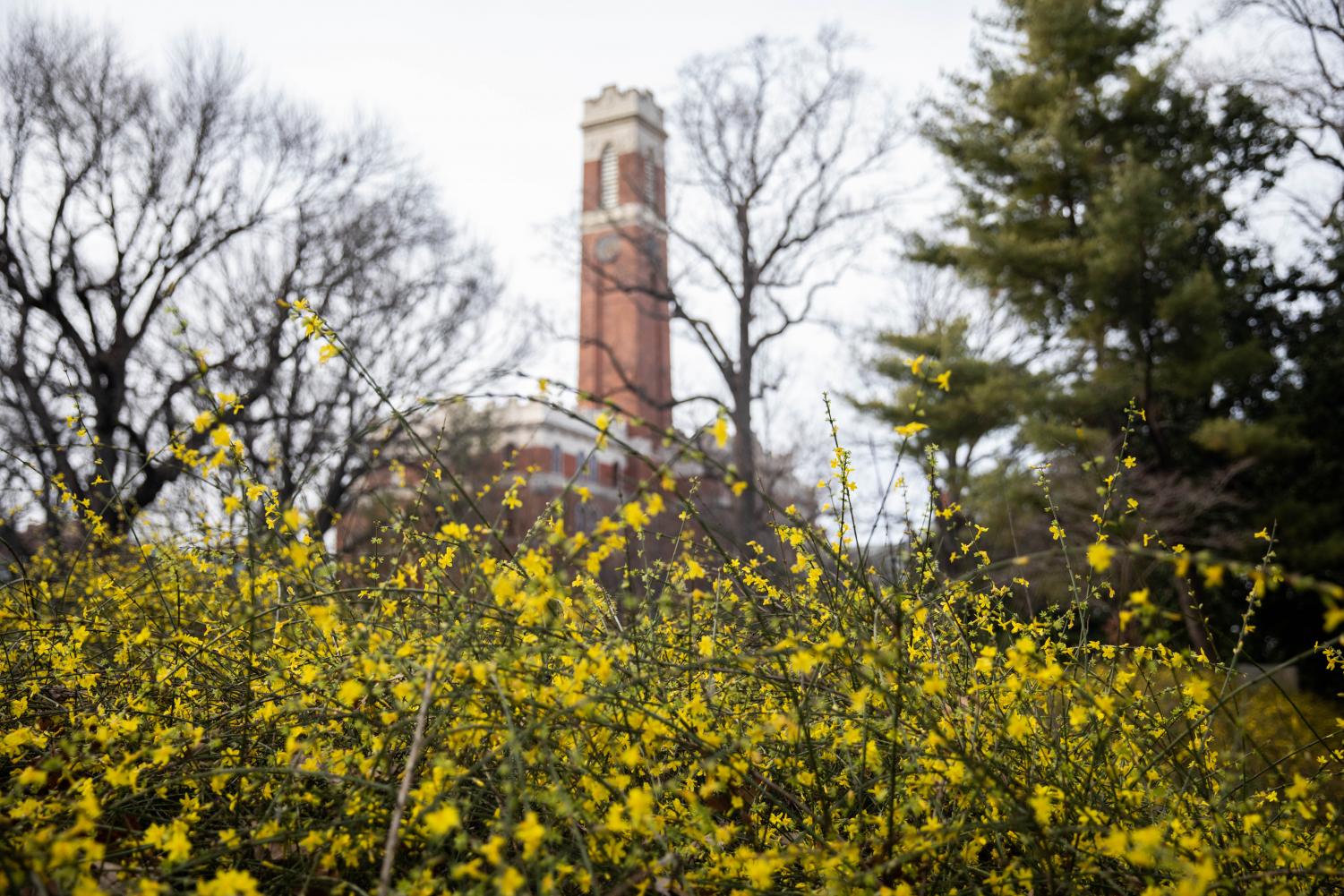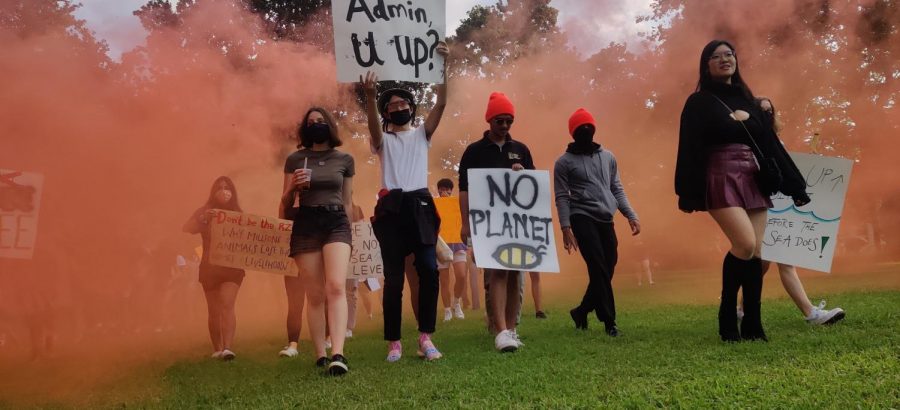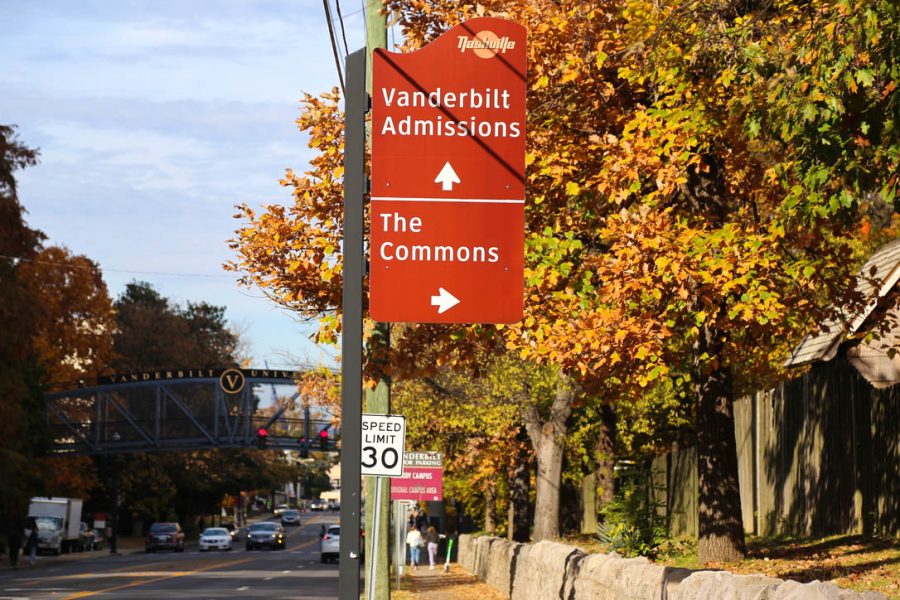Editor’s Note: This piece contains brief mention of sexual assault
I knew my life changed the moment I transferred to Vanderbilt. I had taken the first step towards ending the cycle of poverty that my family has struggled to escape.
Years prior, I had relied on prostitution to covertly amass a savings sufficient to escape poverty. The oldest profession quickly became my lifeline—it was the fastest means of reaping the financial capital necessary to build another life. Mere hours with clients would allow me to make enough money to cover my monthly expenses; though, it came at a greater emotional toll. Unfortunately, such work diverted attention from my educational pursuits, as I needed to focus on securing more clientele to weather the costly city of San Francisco. Thus, I did not have the time to acquire the study skills and education necessary to flourish in academia.
Despite my personal shortcomings, I secured a flawless academic record at my previous institution. Soon after, I transferred to Vanderbilt, excited to boost my resume and reap social mobility benefits elite schools granted their poorest students. Statistics relayed in a New York Times interactive article highlighting economic diversity at elite schools are impressive—59 percent of students from the bottom 20 percent had climbed to the top 20 percent. Should I succeed at Vanderbilt, I would be able to compete within the oversaturated Bay Area job-applicant pool that boasted degrees from elite universities.
For months, I basked in the glory of my acceptance to Vanderbilt as I imagined a new life for myself—one in which I could finally prioritize my educational pursuits in biology and medicine. Here, nationally-renowned instructors could mold me into a cultured individual, ready to become a medical professional.
Once admitted, I became desperate to set myself up for a lucrative career that did not rely on risking arrest in California, sexual assault and sexual health risks like sex work does. Consequently, I believed my Vanderbilt educational experience needed to be academically perfect to maximize my chances of escape. In my mind, imperfection would increase the probability of leaving Vanderbilt without academic success and increased job prospects. Failure would force me to return to prostitution, a profession I had abandoned for a year, that no longer aligned with my long-term goals.
As the Fall 2020 semester began, classes quickly became difficult—a tale unsurprising to other pre-med students. An increase in difficulty was expected, especially when transitioning from an academically easy school to a rigorous one. I had come here for a challenge.
Shortly into the Fall 2020 semester, an apparent disparity between my previous educational experiences and those of my classmates at Vanderbilt came to head. The prerequisites at my prior institution were incomprehensive compared to Vanderbilt’s, failing to prepare me for Vandy’s upper division classes. However, I could not retake the prerequisite classes, as doing so would have forced me to enroll in an extra year of college—one Vanderbilt was unlikely to fund. Therefore, I compounded on incomplete foundational knowledge with advanced material.
No amount of tutoring or attendance in office hours would have allowed me to master the years-worth of necessary prerequisite knowledge alongside successive class material before midterms in the coming weeks.
To be successful, students like myself, who were accustomed to underfunded, easier curricula, would require tailored teaching methods. Many professors did not consider educational histories like mine and failed to adjust their teaching styles accordingly. Requesting personal accommodations from instructors was not an option. Doing so would require me to expose my hardships and humiliate myself. At best, their perception of the student revealing such a story would be permanently altered. I did not want to be known as the poor prostitute of Vanderbilt.
As I struggled to recuperate time lost to learning prerequisite material, any academic success came at the cost of a decline in my mental health. Adding insult to injury, Vanderbilt stripped students of any breaks in the Spring 2021 semester. Even being a step behind my peers during midterms season became mentally taxing as I failed to master rudimentary knowledge and the steady stream of advanced material in time before midterms.
Here, the headwinds that dominated my life were at full force. For the first time since high school, the possibility of academic failure loomed. I did not want to replicate my imperfect high school record—which comprised the occasional failing grade—in college. Here, academic failure would have costlier consequences—I could be shackled to a life I wanted to leave behind.
It is not difficult to understand why Vanderbilt does not cater its academic policies toward students like me. After all, Vanderbilt mostly comprises moderately well-off to well-off students who have the tailwinds needed to familiarize themselves with the prerequisite knowledge throughout their lives.
Following a semester and a half of disregard for the wellbeing of the student body, it has become clear that Vanderbilt needs a shocking introduction to the lives of their most marginalized to be persuaded to properly care for us.
Of course, focusing solely on reinstating spring break will fail to address the systemic roots of the problems I am facing. The issues I face are seen amongst many disadvantaged students who, despite meeting college entry requirements, consistently underperform compared to their advantaged counterparts.
Instructors must frame their curricula by finding ways to supplement learning deficits that fall through the cracks of Vanderbilt’s equal access accommodations, perhaps by creating optional supplemental instruction periods or summer/winter programs without credit to emphasize prerequisite knowledge. Still, the university must go beyond opt-in tutoring resources to further equalize adjustment period opportunities from high school or other colleges to Vanderbilt. Such an environment can be created if Vanderbilt adopts an MIT policy requiring first-years to take classes on a pass/no-record grading scale during their first semester to adjust to the rigorous curricula. Should the administration adopt this grading system, they should extend coverage to incoming transfer students. In doing so, they will create an environment where students—especially disadvantaged ones—can experiment with various learning styles to adjust to the new levels of rigor.
Amongst the Class of 2023, 17 percent of students constituted Pell Grant recipients—students unlikely to have seen tailwinds throughout their lives. As Vanderbilt pines to diversify their student body, the demand for integration initiatives will increase. Failing to provide such opportunities will compromise their well-intended mission of providing disadvantaged students with social mobility benefits. Then, it would then be irresponsible for Vanderbilt to accept marginalized students regardless of their generous financial aid programs, as they would be setting us up for academic and economic failure.
Vanderbilt did not rescue me. Their decisions have placed me at risk of being in a worse state than at my previous school, which, while imperfect, took time to integrate students like myself into higher education. Here, I am less likely to enjoy the benefits of academic success that I have relied on for social mobility and increased job prospects. Still hopeful to secure a middle to upper-middle class lifestyle, I have shifted my focus from academic perfection to maintenance of a sufficient GPA. Vanderbilt’s failure to act immediately will further inhibit the success of students like myself, making it harder to reap the benefits of a Vanderbilt degree and escape our marginalization.






